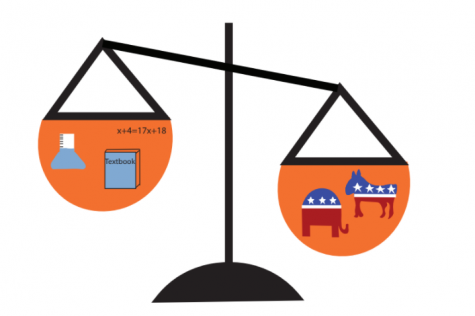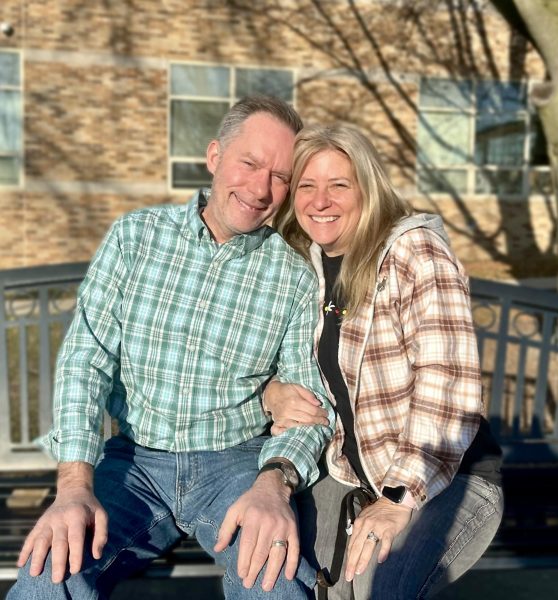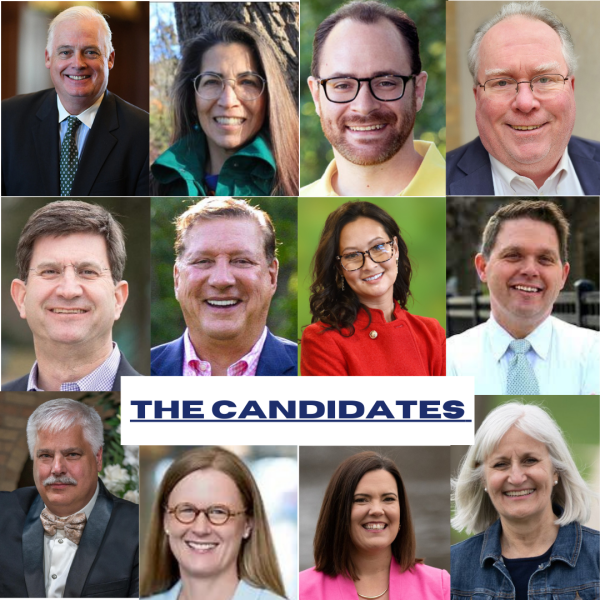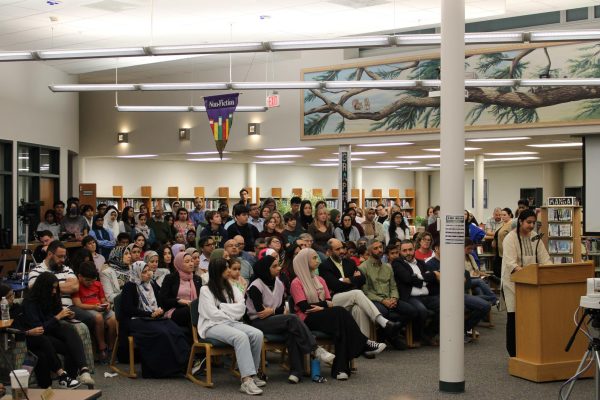Restricted Rights for Teachers
When teachers step foot into school, their First Amendment rights are restricted. According to the American Civil Liberties Union, the First Amendment only protects public school teachers when they are speaking as private citizens, not when they are speaking as part of their duties relating to their job. In other words, teachers can say (almost) anything they want when they are outside the classroom, but in the classroom, as representatives of the school district, they must keep their speech objective.
As Libertyville High School Principal Dr. Thomas Koulentes explained, “the goal of our school is to help students learn to think for themselves by studying the situations, finding research and perspectives that help [them] evaluate a situation and ultimately selecting evidence that leads [them] to a position.”
The newly adopted mission of District 128 is to develop students who are “daring.” This acronym stands for Dreamers and Doers, Aware, Resilient and Healthy, Inquisitive, Nimble and Global. This mission is meant to, as Dr. Koulentes said, help students learn to think for themselves and build a productive future.
Mrs. Nikol Olszewski, a math teacher, echoed this message: “I personally feel like it’s our job to kind of help our students with their views and how to support them…It’s our job to be accepting of everybody,” she stated.
After the Parkland school shooting in February, some teachers brought up the incident in class while others remained silent on the topic. These different reactions may be due to the restrictions on teachers’ First Amendment rights.
“As a public employee, [a teacher has] to be able to work with all students and all families,” Dr. Koulentes said. “What they need to do is refrain from forcing political viewpoints or opinions onto students.”
Teachers have their own explanations as to why they think their rights are different than those of private workers.
“Some people say teachers can’t talk about [their opinions] because we’re in a position of power, we’re in position of authority, we’re in a position of influence,” said Mr. Ryan Ebling, English teacher.
In their teenage years, students are learning to think for themselves and develop their own ideas and beliefs. If one of their teachers discusses their personal beliefs in class, a student could feel as though they’re being forced to feel a certain way or believe in a specific idea.
In an email interview, sophomore Matthew Murbach supported the restrictions that exist: “I don’t think that teachers should express their political beliefs because their jobs are to teach, not indoctrinate students to their political ideology.”
However, some believe teachers should talk about politics during class, but the conversation should remain as objective as possible.
“I think that it’s important for students and teachers to engage with all ideas, and it’s impossible to speak about things objectively because we all have a point of view,” Mr. Ebling said. “So I don’t think you can ever really have a real conversation about it if you don’t introduce [different] points of view.”
Mr. Ebling specified that this type of discussion should lean greatly on the opinions of students and that as a teacher, he would refrain from discussing his personal views.
Junior Thomas Pearson believes the restrictions on teachers are too severe.
“Everyone has their right to freedom of speech and freedom of expression and that needs to be something that’s at the forefront of our discussions — that everybody is heard,” he said. “To a certain extent, [teachers] should [discuss their political beliefs at school] because it’s part of who they are.”
Pearson also discussed that a teacher’s belief should not interfere with the material being taught. A student is in school to learn about fact-based subjects, he noted. When a teacher discusses their personal opinion, the conversation is no longer based on facts proven by evidence as much as it is on individual ideas and beliefs.
The issue of keeping classroom conversations objective applies more easily to some courses than others based on the nature of the class’s material.
“I teach physics, that’s what I’m paid to do,” said Mr. Mark Buesing. “There’s not a lot of politics involved unless it pertains to some historical, political situation that led to some scientific discovery.”
When a tragedy like the Parkland shooting occurs, teachers each have their own ideas about the best way to respond to it in the classroom. Mr. Ebling chose to discuss the event with his class; he explained that he tends to be more in tune with his emotions than he is with the politics around this type of situation.
“I feel like most of the discussion I had [with my class after the Parkland shooting] was about processing those feelings, processing the fear,” he explained.
Mr. Mark Buesing expressed a similar stance: “It’s important to [me] that [my students] know that I would do anything to keep them safe in any situation.”
Mrs. Olszewski explained that she thinks it’s important to bring these topics up: “I think that if you don’t talk about major issues or things when they happen, it’s a missed opportunity for teachers to help students form opinions in a healthy way.”
As a student, Pearson favors these teachers’ approaches.
“I think that if the teacher can be the one to facilitate constructive and peaceful and…actual good conversation that that can help not solve those issues but to help us as students to prepare for the real world when… we’re kind of put into that situation,” he said.














